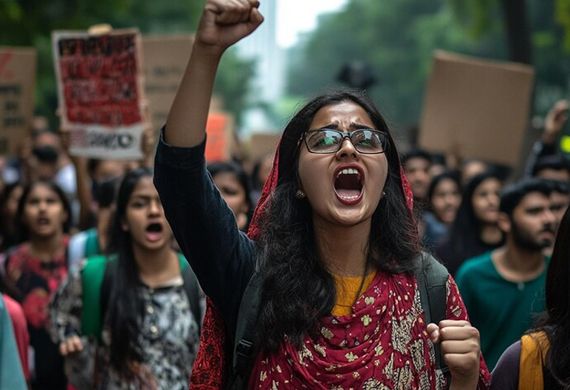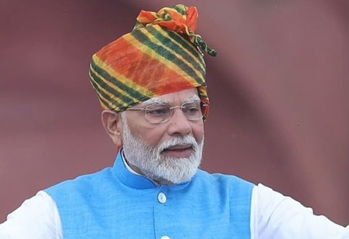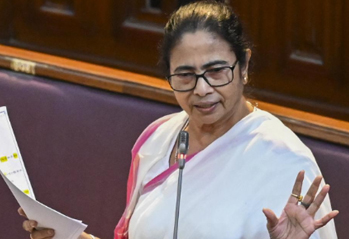
Need of the Hour: Reforming Laws to Combat Crimes Against Women
By: Ayushi Dutta, Correspondent
Women's safety in India has been a pressing issue for decades drawing attention to the urgent need for systemic changes in law enforcement, societal attitudes, and support mechanisms. Despite economic progress and advancements, violent crimes like sexual assault, domestic violence, and human trafficking continue to pose a threat.
Is India a safe country for women? Statistics strongly suggest against it. According to data from the National Crime Report Bureau (NCRB), on average one rape takes place every six minutes in India.
Although the statistic itself is astonishing, it becomes more gut-wrenching when one is made privy to the horrific details about sexual crimes committed against women.
We all remember the horrific 'Nirbhaya' case that occurred on the fateful night of December 2012, in Delhi where a young woman was brutally assaulted and tortured on a moving bus by six men. The victim eventually died a few days later.
The nation has been shaken by yet another similar heinous crime committed at the RG Kar Medical College in Kolkata, where a young female trainee doctor was raped and murdered on 8 August 2024.
The heinous crime highlights the ongoing threat to women's safety and raises questions about public institutions' security measures. The incident has sparked widespread protests both in India and globally and highlighted the pervasive issue of violence against women.
Evolution of Law for Women’s Safety
However, these cases have led to legal changes such as stricter laws against sexual assault and the establishment of fast-track courts but in 2023, the National Commission for Women (NCW) India received 28,811 complaints of crimes against women, primarily in the "right to dignity" category. Delhi, Uttar Pradesh, and Maharashtra received the highest number of such cases. Other complaints included dowry harassment, molestation, police apathy, and rape. The Georgetown Institute's 2023 Women Peace and Security Index ranked India 128 out of 177 countries.
In addition to this, after the Kolkata Medical College case, the Indian Medical Association (IMA) conducted a survey that revealed 35 per cent of 3,885 doctors, mainly women, feel unsafe during night shifts, leading some to carry weapons for self-defense. The majority of women doctors, aged 20-32, experience the lowest sense of safety due to inadequate duty rooms, overcrowding, and lack of privacy.
Leaders Echoe Public’s Sentiments

Following the recent cases, the Indian government has reformed the laws and amendments in the legal procedures ensuring ‘strict to strictest’ punishments given to the offenders to reduce the crimes against women. On the 78th Independence Day, the Prime Minister of India, Narendra Modi emphasized the need for swift investigation and severe penalties for crimes against women, emphasizing the importance of making the consequences of such crimes highly visible. He announced that the government is enforcing stricter rules that will result in harsh penalties for crimes against women. India's PM noted that "as a society, we'll have to think seriously about atrocities against our mothers, sisters, and daughters. There's outrage against this... I can feel it... Crimes against women must be speedily probed and those who commit monstrous deeds should be promptly punished."
Additionally, Indian President Droupadi Murmu said that the recent incident "dismayed and horrified" her and condemned that India needs to wake up to "perversion" of crime against women. People need to change their mindset of women being "less capable", "less powerful" or "less intelligent". She mentioned, "Enough is enough. No civilized society can allow daughters and sisters to be subjected to such atrocities" expressing anger over the crimes against women. She further added that it has been 12 years since the Nirbhaya case and in that period countless rapes have been forgotten, this "collective amnesia" is obnoxious.
Important Laws & Reforms by the Indian Government After Kolkata Rape & Murder Case
The West Bengal Health Department has launched a program called 'Rattierer Saathi - Helpers of the Night' to ensure the safety of women working night shifts in sectors like healthcare, IT, and hospitality. The initiative will enforce guidelines in medical colleges, hospitals, and hostels, including designated restrooms and women volunteers. This flagship programme has been launched in order to improve the safety and security of women working night shifts in both government and private sectors.

According to the statement released, "There should be separate designated restrooms with toilets for women. Woman volunteers shall be on duty at night. Safe zones will be identified and created for women with full CCTV coverage. A special mobile phone app with alarm devices will be developed which shall be compulsorily downloaded by all working women and will be connected to the local police stations/police control room." The order recommends emergency helpline numbers, regular security checks, Vishakha Committees to address sexual harassment, night police patrols, adequate drinking water, identity cards, security officers, and limited working hours for women.
The Ministry of Women and Child Development in India has launched the SHe-Box portal, a centralized platform for women to register and monitor complaints of workplace sexual harassment. The platform, launched by Union Minister Smt. Annpurna Devi aims to make workplaces safer for women in both the public and private sectors. She mentioned, "This initiative is a critical step forward in providing a more efficient and secure platform for addressing workplace-related sexual harassment complaints. It furthers the government's commitment to creating a safer and more inclusive working environment for women across India."
Maharashtra's cabinet, led by Deputy Chief Minister Ajit Pawar, is implementing a new approach to women's harassment cases, allowing online filing of complaints. This move is part of a broader strategy to combat crimes against women, including harsher penalties and faster-track courts. The government also plans to install panic buttons in schools and hostels to improve safety, especially for female students, following a tragic incident in Badlapur. The MSCPCR suggested the establishment of special branches or "mini-police stations" for women and children in every police station across the state.
The ‘Aparajita Women and Child Bill’ was passed by the West Bengal Assembly on September 2024 which introduces stringent punishments that include death penalties and life imprisonment based on the seriousness of the crime for convicted rapists. Chief Minister Mamata Banerjee praised the 'Aparajita' Bill 2024' for its historic and model nature, highlighting its potential to address gender-based violence and urging for prompt assent from Governor CV Ananda Bose. She mentioned, "Rape is a curse against humanity, and we require social reforms to prevent such atrocities."


.jpg)



